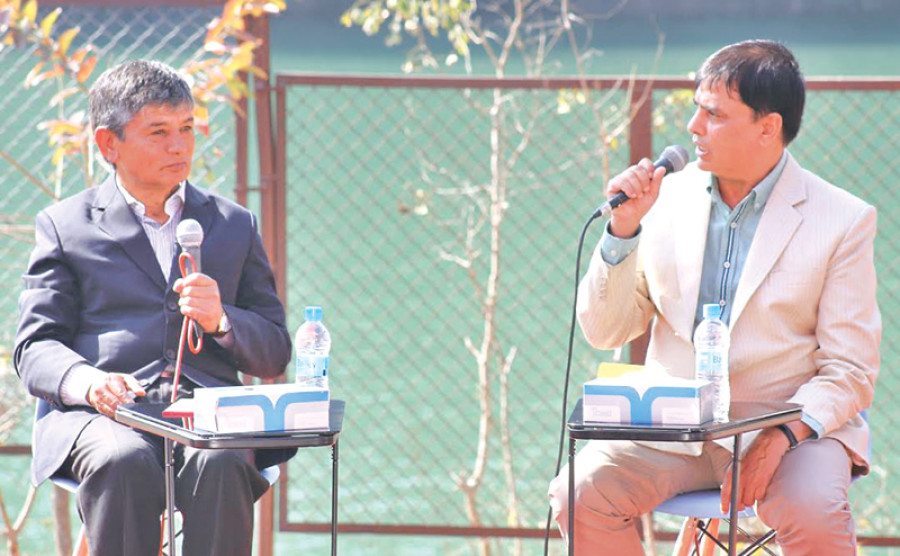Entertainment
Nepal lit fest concludes
The sixth edition of the Nepal Literature Festival concluded on a poetic note at the premises of Nepal Tourism Board in Pardi, Pokhara, on January 30.
The sixth edition of the Nepal Literature Festival concluded on a poetic note at the premises of Nepal Tourism Board in Pardi, Pokhara, on January 30. The four-day fest, jointly organised by Bookworm Foundation and Random Reader’s Society, saw more than 30 panel discussions that focused not only on literature but also on crucial issues of public discourse such as politics, arts, music, economy and the media.
The fest, a veritable platform where writers get to connect to their readers, was keenly attended and signified the boost of reading culture in the country. Speaking to the Post about the reception of the festival, director Ajit Baral said, “The festival has been quite a success given the number of literary-enthusiasts who attended the fest and the range of issues that have been discussed.” He added, “After we hosted the fest in Pokhara last year, many suggested that organising the fest in Pokhara would be a good idea given Pokhara’s picturesque landscape. We hope to continue this festival in coming years and making it bigger and better.”
The final day of the fest featured 10 sessions, starting off with a discussion, Safal Sajhedhari ka Pathharu, about the secret of lifelong friendship of the duo of Madan Krishna Shrestha and Hari Bansha Acharya, together as MaHa Jodi. In the conversation moderated by Gunaraj Luitel, Shrestha and Acharya shared ups and downs of their 36 years-long partnership. The session was followed by a discussion titled Runche Sahitya, where authors Buddhisagar and Amar Nyaupane talked about the art of infusing sentiments into writing and its challenges. The session coincided with a discussion titled The Romantic where Indian author Durjoy Datta and singer/songwriter Samriddhi Rai came together to talk about the nuances of romantic writing.
There were another parallel sessions being held, where one session discussed about the effects of social media on literature with Bhutanese journalist Namge Zan, Jivan Chhetri, Subin Bhattarai and Richa Bhattarai; another one talked about rebellious literature with Rajan Mukarang, Saraswoti Pratikshya and Khagendra Sangroula.
Another session held in parallel, Pesha Badha ki Khurak and Sahitya ma Samaya Chet had discussions about effects of other professional work and literary on each other and time constraint while writing. Speaking about the constraint not just in time but other aspects too, Sarita Tiwari said, “When we make food, we pay close attention to quantity of ingredients we use. Likewise, in literature too, writers have to pay attention to what readers can digest. If we cross certain boundaries, it might harm the society.”
The eighth session of the day was, Chadika Ghera where Amit Dhakal talked with Gagan Thapa and Kulman Ghising. The session was able to draw the largest crowd in the fest. In the second last session of the fest, Gau Gau Bata Utha, Basanta Thapa conversed with veteran singer and poet Raamesh about his famous song. The festival ended on a high note with dozens
of poets coming together to share their poems. The session which was most appreciated by the crowd was moderated by Saraswoti Pratikshya.
The four-day literature fest where writers were able to connect with readers brought together more than 100 authors, artists, politicians, media persons, intellectuals, economists and sociologists among others.




 9.7°C Kathmandu
9.7°C Kathmandu









